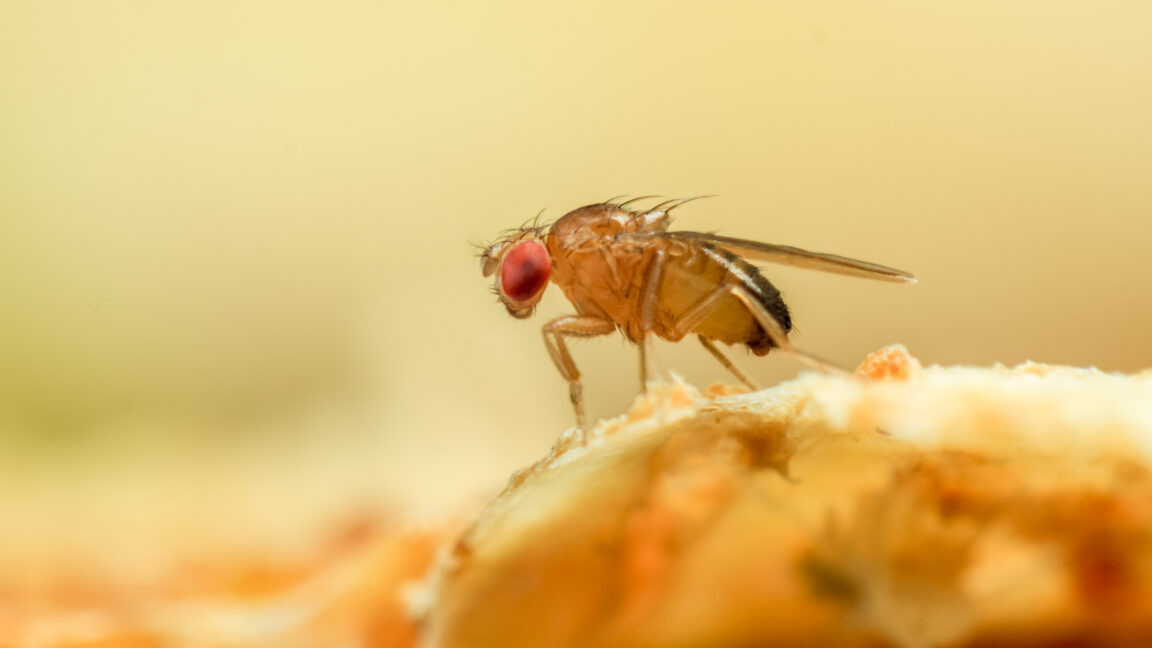Those genes associated with metabolism were upregulated, meaning they showed an increase in activity. An observed loss of body fat and protein reserves was evidently a trade-off for resistance to mites. This suggests there was increased lipolysis, or the breakdown of fats, and proteolysis, the breakdown of proteins, in resistant lines of flies.
Parasite paranoia
The depletion of nutrients could make fruit flies less likely to survive even without mites feeding off them, but their tenaciousness when it comes to staying up through the night suggests that being parasitized by mites is still the greater risk. Because mite-resistant flies did not sleep, their oxygen consumption and activity also increased during the night to levels no different from those of control group flies during the day.
Keeping mites away involves moving around so the fly can buzz off if mites crawl too close. Knowing this, Benoit wanted to see what would happen if the resistant flies’ movement was restricted. It was doom. When the flies were restrained, the mite-resistant flies were as susceptible to mites as the controls. Activity alone was important for resisting mites.
Since mites are ectoparasites, or external parasites (as opposed to internal parasites like tapeworms), potential hosts like flies can benefit from hypervigilance. Sleep is typically beneficial to a host invaded by an internal parasite because it increases the immune response. Unfortunately for the flies, sleeping would only make them an easy meal for mites. Keeping both stereoscopic eyes out for an external parasite means there is no time left for sleep.
“The pattern of reduced sleep likely allows the flies to be more responsive during encounters with mites during the night,” the researchers said in their study, which was recently published in Biological Timing and Sleep. “There could be differences in sleep occurring during the day, but these differences may be less important as D. melanogaster sleeps much less during the day.”
Fruit flies aren’t the only creatures with sleep patterns that parasites disrupt. Evidence of shifts in sleep and rest in birds and bats has been shown to happen when there is a risk of parasitism after dark. For the flies, exhaustion has the upside of better fertility if they manage to avoid bites, so a mate must be worth all those sleepless nights.
Biological Timing and Sleep, 2025. DOI: 10.1038/s44323-025-00031-7

